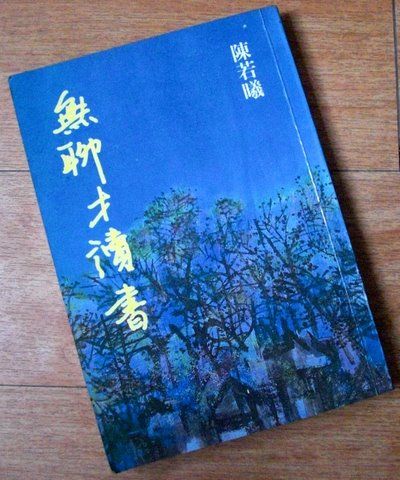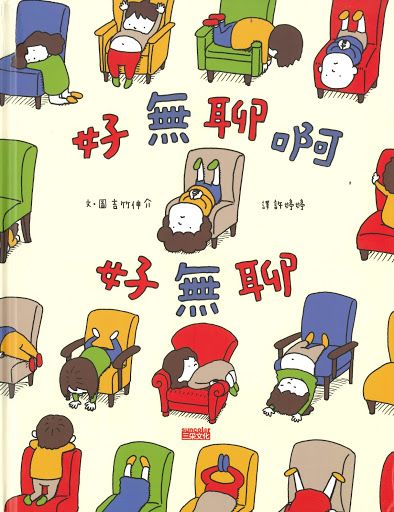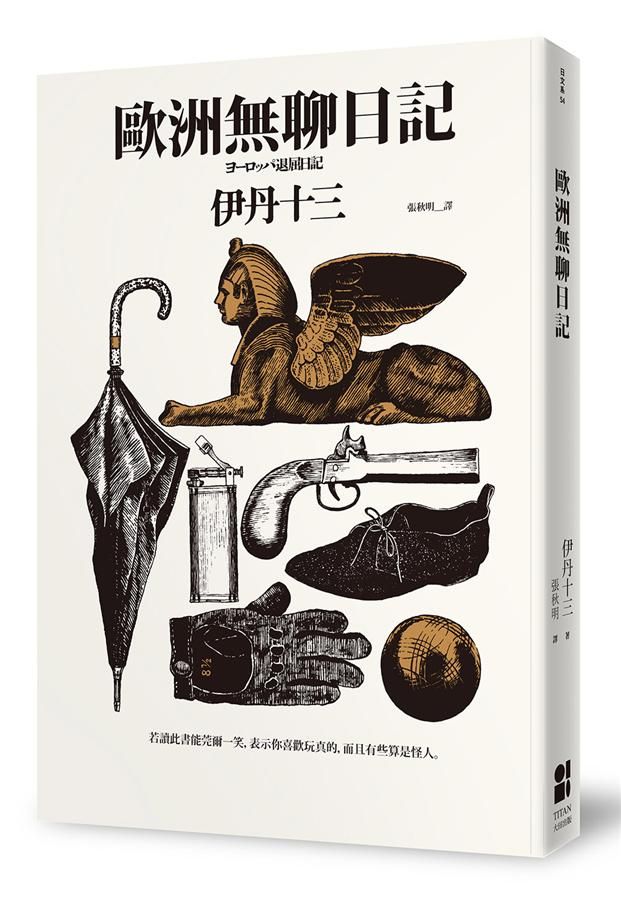"boring" books
Friends around me know that I am a boring person: I like to talk boring things. Perhaps a person spends a lot of time alone, and when meeting with friends, there is a lot of boring talk.
In that case, let's introduce the book under the title of "boring".
The first choice is also very relevant: Teacher Chen Ruoya's "Reading When Bored". Who is Chen Ruoya? Maybe you may not know, but you will know his classmates. Around 1960, among the members of the editorial board of "Modern Literature" with the Department of Foreign Languages at National Taiwan University, there were famous writers Liu Shaoming, Bai Xianyong, Li Oufan, Wang Wenxing, etc. Chen Ruoxi is also a member of the editorial board. After that, her experience can be known on the Internet Wiki. This book "Reading When I'm Bored" was published by Tiandi Books in 1985. The price is HK$16. Of course, if Tiandi Books could still find this book today, the price marked should not be this.
This book "originally" didn't belong to me, it was bought by my dad. When I was in elementary school, I saw this book on the shelf and wanted to read it. I only read it when I was in junior high school, but the book was already tattered, and the glue could no longer stick to the pages, so I had to use adhesive tape to subsidize the subsidy. Perhaps for this reason, it has become a beautiful landscape in my heart. So when Dad said he was going to throw it away, I grabbed it back and became a part of my bookcase.
The sentence "Reading when you are bored" comes from a limerick "Giving Wu Qishan" by Mr. Lu Xun:
Living in Shanghai for 20 years, seeing China every day; I don't ask for medicine when I'm sick, I read when I'm bored; A wide face changes, and more and more heads are beheaded; Suddenly he went down to the field again, and there was no Amitabha in the south.
Mr. Lu Xun wrote, satirizing the warlords of the time. "Reading when I'm bored" is just an excuse to stay behind closed doors, but the author used this as the title to write an essay about her "love of reading". Maybe the editor thinks it's a good title for this book, and that's it, it's done.
"Reading When I'm Bored" is a collection of essays, including more than 20 essays by Chen Ruoxi. Some are in life, such as "The Story of Riding a Mule" and "The Story of Learning the Qin", and some are contemporary such as "Appeal for the National Government to Amnesty for the Kaohsiung Incident inmates", "Restart the Party Outside the Party", and her reading/teaching experience such as " Ah, National Taiwan University", "Reading when I'm bored", etc. When the author talked about the passage in "Reading Only When I'm Bored", she laughed in her heart: because she likes to lend books to others, but she never looked back. When she was preparing the textbook, she found that there was no book, so she could only ask people to borrow it.
Fortunately, my books are not easy to borrow, and the people who borrow them are all "superior people" (both borrowed and returned).
Revisiting this book now and still enjoys it. I think my dad kept opening this book and reading it back then, and he made it like this.
~~~~~~~~~~~~~~
The second "boring" book is "So Boring, So Boring" by Shinsuke Yoshitake. Although this is a picture book, because the content is too boring and interesting, I will really laugh after reading it. The story is extremely boring, that is, a child feels so bored and keeps thinking about why there is this "boring", how to "solve the boring", and finally. . . It's so boring! ! ! ! !
However, if there are no "boring" moments in life, how can we set off "wonderful" moments?
However, will it become "boring" after "exciting"?
OS: You are so boring!
~~~~~~~~~~~~~~
The third book is "The Boring Diary of Europe" by Mr. Itami San. Itami Thirteen is a filmmaker, but unfortunately I haven't seen his films. This book is what he saw and heard when he went to Europe to make a film when he was young. Mr. Itami may find it boring, so he writes essays. But from today, I think he is like a KOL who keeps writing about his thoughts/feelings on Facebook, watching him make noise. In addition to introducing European landscapes, how to drink various wines, and buy shoes, the book also makes no secret that Japanese people don't know how to eat pasta, and they drive a sports car but keep on breaking. All kinds of... each article is not long, and it is very enjoyable to read.
The Japanese version of this book is titled "The Diary of a Retreat". The word "retraction" (たいくつ) originally comes from a Buddhist term, and the website says this:
After being exhausted by asceticism, the heart of training began to subside (backward する), and the spirit gradually became exhausted (withering えて沒する), and finally had the idea of leaving the sea of suffering, so he simply gave up and did nothing to pass the time. Hence the term "boring".
When I read this book, I didn't feel that way. From the lines, I felt that Itami San was a serious person.
There is a sentence in the writing: "If you can smile when you read this book, it means that you like to play real games, and some of them are weird".
I should be a weirdo. Correction: Should be a boring person.
~~~~~~~~~~~~~~
Extended information:
"Reading When I'm Bored" (out of print)
Gift to Wu Qishan: https://kknews.cc/zh-hk/culture/bz6ybrn.html
"So boring, so boring"
https://www.books.com.tw/products/0010782439?sloc=main
Video introduction: https://www.youtube.com/watch?v=0k5i3nNHvzE
"European Boring Diary"
https://www.books.com.tw/products/0010868400
The difference between "つまらない", "Back off" and "くだらない"
https://www.sigure.tw/learn-japanese/mix/difference/tsumaranai-taikutsu-kudaranai.php



Like my work? Don't forget to support and clap, let me know that you are with me on the road of creation. Keep this enthusiasm together!
